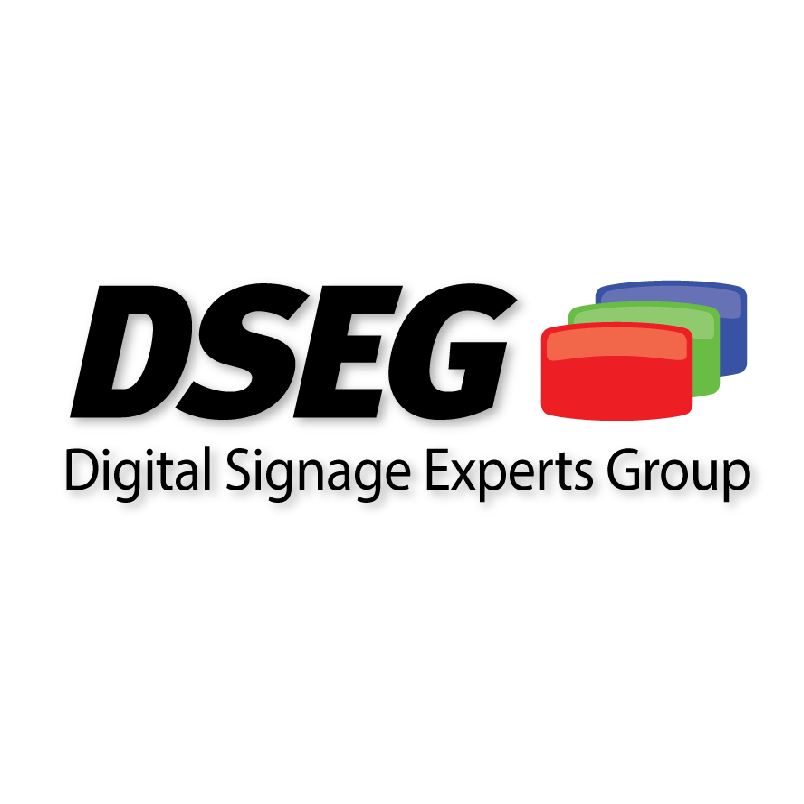
By Alan C. Brawn CTS, DSCE, DSDE, DSNE, DCME, DSSP, ISF-C
Each month, as I select topics of interest to the digital signage community, I reach out to friends and colleagues for input and to see if they have ideas that they might want to see… but perhaps have not had the time to address on their own. As I was about to select a topic for this month, a timely idea came from DSF board member extraordinaire, Paul Fleuranges. Thanks Paul! His topic speaks to the heart and soul of the industry and the service that the DSF provides. In his email to me, he spoke about the tough jobs market, with some sectors facing layoffs and yet others are flourishing. He suggested covering how to navigate the digital signage job market, how to differentiate yourself from the competition (to get noticed!), and/or how to choose the right candidate (aka. team member) for your company. Ever the DSF “cheerleader” Paul went on to say that “This would be a great tie-in to the Careers Center & Jobs Board the DSF just announced.” Of course, he is correct… so let me explore this a bit. Think about this from the perspective of those seeking a job in digital signage, and for companies adding new team members.
Under the umbrella of navigating the digital signage job market, if you are new to the industry or have limited experience, you need to begin by educating yourself about the makeup of the industry. Be forewarned there is a lot to wrap your arms around! It is like the proverbial iceberg, with far more under the surface than above… but don’t be intimidated, it is imminently doable. Armed with this, you can market yourself as someone with a certain degree of knowledge, or even (if you do a lot of prep work) as an industry expert. Companies will recognize your knowledge and commitment and will be more likely and enthusiastic about hiring you. Of course, this begs the question of how and where to acquire this knowledge and expertise.
Think in terms of a personal elevator pitch that opens the door to start the conversation. The goal here is to communicate quickly and succinctly (in approximately 60 seconds) what you bring to the table with your skills, experience, and goals.
Word of mouth is one way to gain knowledge… but all too often it lacks objectivity. One voice you can depend on is the Digital Signage Federation, and they provide a more formalized and objective approach. The DSF organization and website is chock full of useful information and has a library of what they call Micro Credentials, courses that you as a member would have easy access to. Pursue these courses and select topics that fit your interests. Next in the pursuit of expertise is to become certified in digital signage. The Digital Signage Experts Group (DSEG), in cooperation with the DSF, offers a variety of recognized industry certifications starting with the Digital Signage Certified Expert (DSCE). This covers the foundation of the industry. The DSCE introduces the 7 Key Elements which are Business, Content, Design, Software, Hardware, Connectivity, and Operations. No matter your area of specialization, this gives you a more complete understanding of the makeup of the digital signage industry. Gaining and exhibiting expertise about the industry gives you credibility, a leg up on the competition, and opens the door to sell yourself to a potential employer.

Assuming you have taken the advice to familiarize yourself with the digital signage industry at some level of expertise (beyond a Google search!), it’s now time to look inward at what you have to offer, and outward at what a prospective employer might need. Keep in mind that the following suggestions apply no matter what industry you wish to enter… but are especially pertinent to the digital signage industry.
In today’s job market, it can be difficult to stand out from the crowd. With so many seemingly qualified candidates vying for the same position, how can you make sure that you catch the eye of the hiring manager? The core answer resides in marketing yourself, but before you do that you need to prepare. Ben Franklin famously said, “If you fail to plan, you are planning to fail!” I suggest you begin your planning with a personal SWOT analysis. It is tough to look in the mirror, but objective introspection is required if you are to market yourself in a meaningful and productive manner. Follow these five steps to create a thorough self SWOT for a variety of professional situations:
- List your relevant strengths, both overall and specific to the targeted job
- Review your weaknesses both overall and specific to the targeted job
- Define your opportunities, and think outside the box
- Understand any potential threats or barriers that exist
- Then make an informed decision on the next steps.
Once the SWOT is complete the next step is the creation of your personal value proposition (PVP). Keep in mind two versions, one general and one specific to a job opportunity. Just as a company creates value propositions on why to buy from them rather than the competition, it is equally relevant to do so on a personal level. You need to state why “pick me!”… rather than others. Think in terms of a personal elevator pitch that opens the door to start the conversation. The goal here is to communicate quickly and succinctly (in approximately 60 seconds) what you bring to the table with your skills, experience, and goals. Here are the elements to include in your elevator pitch:
- Introduce yourself
- Summarize your background
- List your strengths and skills
- Mention the type of position you’re seeking
- End the pitch with a call to action
The statement concisely explains what makes a job seeker unique, including skills, strengths, and accomplishments, and how you will add value to a company. In short (KISS – keep it short and simple) it states why to hire you, not someone else, and in the best-case scenario opens the door for further exploration and discussion.
Ultimately, it is all about articulating your value. The only thing the employer cares about is “What are you going to do for me today, tomorrow, and in the future?” This is where researching a potential employer comes to the forefront… and this arms you with information that you will need to proceed. Before you even begin filling out an application, it’s important to learn as much as you can about the company and the position you’re applying for. Do you really know them, or just know “of” them? Employers are impressed by candidates who put effort into learning more about their company and its products. Before an interview or meeting with a potential manager, research the company. You need to take the time at a cursory level to familiarize yourself with the company’s website, social media pages and reviews. If you see the beginnings of a “fit” in concert with your personal goals, you need to dig deeper and explore their mission statement, stated values, their focus and apparent needs, plus recognizable challenges. This will help with a greater understanding of who the company is, what they’re passionate about and what their overall goals are. You can then tailor your story and connect your personal assets, experience, and your track-record of proven results to what they’re looking for and show how you would be a good fit for the organization.
Keep in mind that most employers are searching for employees who provide more than a list of skills and experience. Most (especially in digital signage) will look for team members who provide passion and dedication for the company’s products, services, and brand. Your goal when marketing yourself to employers is to prove not only that you’re right for the job, but that you’re right for the company as well. When companies search for potential employees, they are interested in how your skills, attitude, personality, and experience will blend with other team members and support their culture of communication and collaboration.
Our goal with this is to help job seekers to navigate the digital signage job market and provide tangible ways to plan and prepare to market yourself and differentiate you from the competition. This also highlights what companies should look for in candidates as they add them to their teams. The final piece of advice is to think about digital signage not as a job but rather a career. The nuance is significant. Let the DSF and DSEG provide the learning and the certifications and look at the new DSF Careers Center & Jobs Board to see what is available and what might fit your career goals and aspirations.





